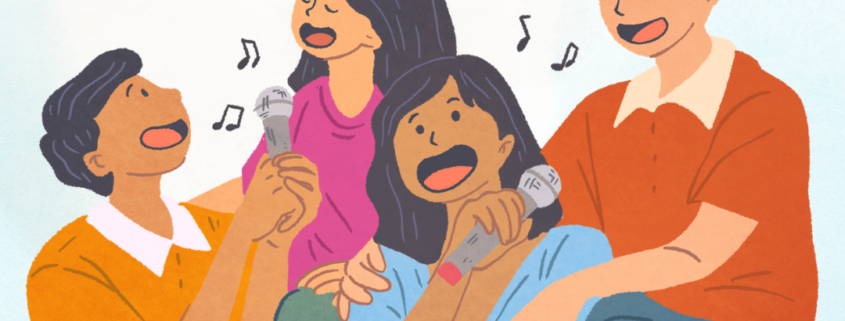Friendship and Mental Health/ Why You Need More Than Just a Therapist
Author: Toriann Clarke
Therapy is powerful. It can be a lifeline during difficult times and a catalyst for deep personal growth. But therapy alone isn’t enough. As essential as it is to have a trained professional in your corner, there’s another critical ingredient to emotional well-being that’s often overlooked: friendship.
Healthy friendships aren’t a luxury, they’re a mental health necessity.
Therapy Can’t Replace Connection
Your therapist is there to help you unpack trauma, process emotions, and develop coping tools. But they’re not with you when you’re celebrating a new job, texting through a hard day, or needing someone to remind you that you’re not alone in the world. That’s where friends come in.
Friendship provides something therapy can’t: mutuality. While a therapeutic relationship is one-way, you open up and the therapist supports, friendship is reciprocal. You laugh together. You support each other. You show up in ways big and small. That mutual connection nurtures a sense of belonging, which is foundational to good mental health.
How Friendship Supports Mental Health
- Emotional Validation
Good friends offer empathy and reassurance during tough times. They don’t need to fix you, they just need to witness your feelings and say, “I get it.” - Stress Buffering
Strong social support lowers the impact of stress. Just knowing someone has your back makes life’s challenges feel more manageable. - Increased Resilience
When you have a trusted circle, you’re more likely to bounce back from adversity. Friends remind you of your strengths when you forget. - Accountability and Motivation
Friends encourage you to take care of yourself, whether it’s going outside, eating something nourishing, or facing a difficult situation. - Joy and Play
Laughter, silliness, shared hobbies, these things don’t just feel good; they boost mood, improve brain function, and enhance life satisfaction.
What Happens When Friendship Is Missing
Loneliness and isolation can be just as damaging as depression or anxiety, and often contribute to them. Studies have shown that chronic loneliness increases the risk of mental illness, heart disease, and even early mortality.
Here’s the catch: When you’re struggling mentally, it’s often harder to reach out. You may feel like a burden, or that you don’t have the energy to maintain relationships. This creates a painful cycle of withdrawal that reinforces loneliness and worsens symptoms.
Building and Rebuilding Friendships
Whether you’re looking to deepen existing friendships or form new ones, it’s never too late to invest in connection. Here are a few ways to start:
- Be intentional. Schedule regular check-ins or shared activities, even if they’re short or virtual.
- Start small. You don’t need to bare your soul in the first conversation. Consistent, low-pressure interactions build trust over time.
- Be vulnerable. Let people know when you’re having a hard day. Most people want to help, they just don’t know unless you tell them.
- Join a community. Whether it’s a support group, class, or volunteer organization, shared interests are a natural starting point for connection.
- Reach out again. If you’ve lost touch with someone you care about, it’s okay to send a simple message: “I’ve been thinking of you, want to catch up?”
Friendship and Therapy: A Winning Combination
Friendship doesn’t replace therapy and therapy doesn’t replace friendship because they work together. A therapist helps you understand your patterns and wounds. A friend walks with you as you try to change them. One provides a container for healing; the other brings life to that healing through everyday connection.
So yes, you may need a therapist. But you also need someone who texts you memes, celebrates your wins, sits with you in silence, and reminds you to eat lunch. You need people who see you, know you, and want to be there, and a friendship does that.
Equilibria is a group of licensed mental health professionals in Pennsylvania and New Jersey with multiple specialties to serve all aspects of our diverse community’s mental, emotional, and behavioral needs. We provide in person and telehealth services to individuals of all ages, families, and those in relationships. Click here to schedule an appointment today.


